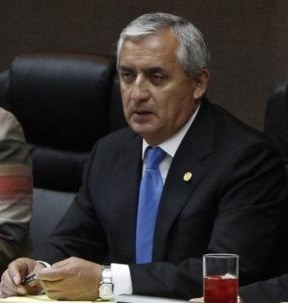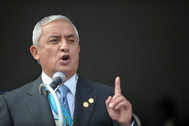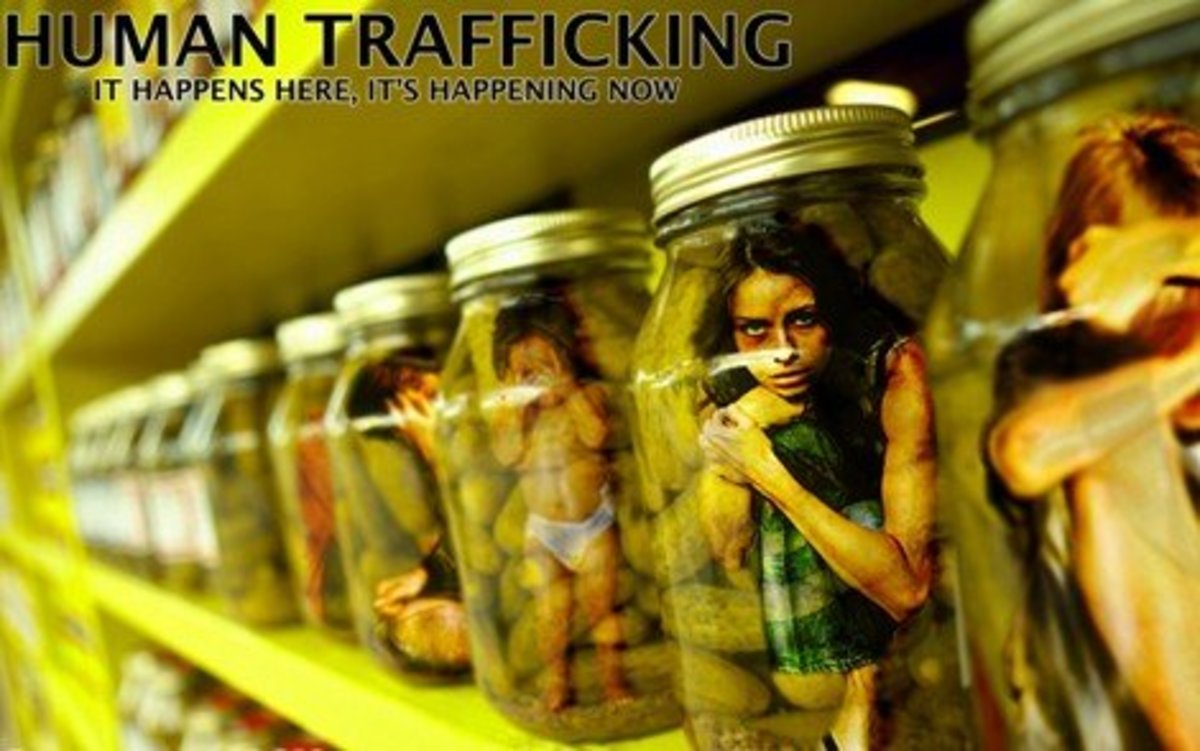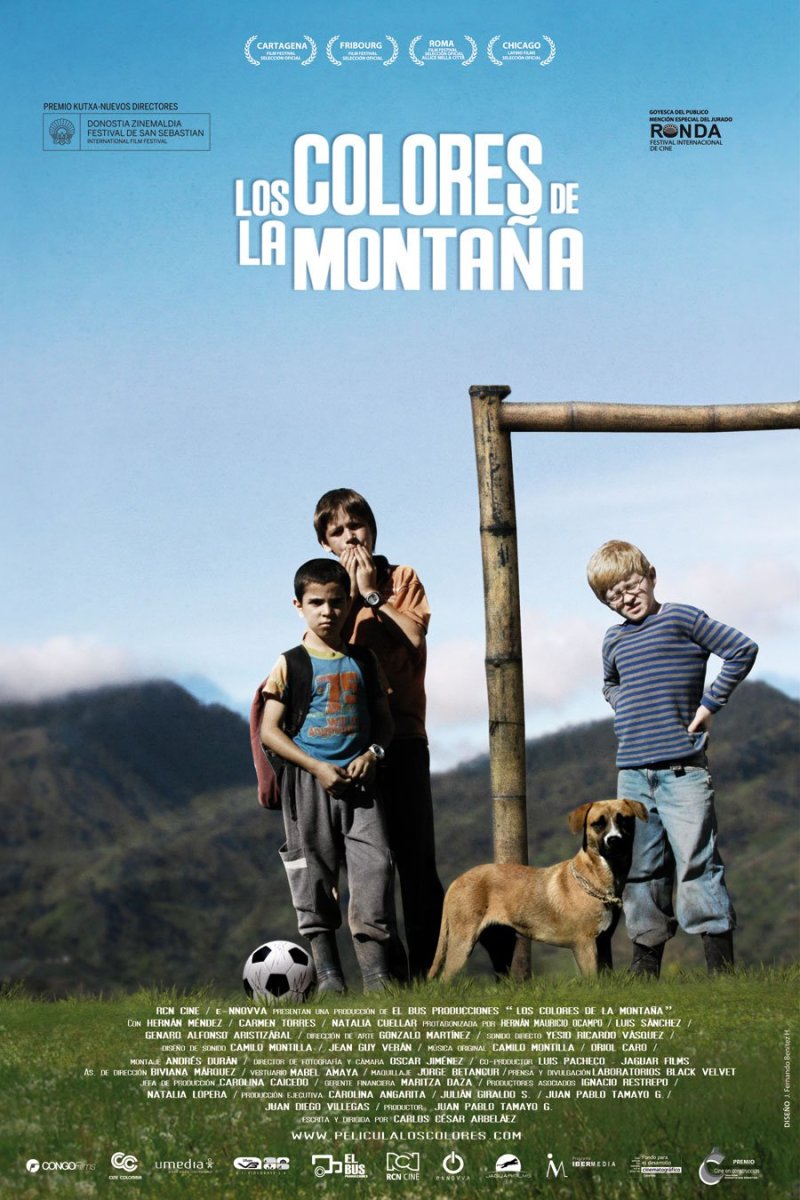The Drug War in Guatemala
President Otto Molina

Guatemala
Guatemala's Solution to the Drug War
Guatemala is one of the poorest counties in the world. It is a country that is known and studied for having absolute poverty, a term that cannot be used in America. According to Dr. Gordon, a Professor of Social Justice at Bristol University, absolute poverty is "a condition characterized by severe deprivation of basic human needs, including food, safe drinking water, sanitation facilities, health, shelter, education and information”. (p. 3). It is estimated that 13% of their population live in extreme poverty and more than 50% live below the national poverty line. Our country, the United States, is fortunate in that it has services available so that these conditions do not exist to the extent of absolute poverty, and services are available to feed and help the citizens that earn below the national poverty level. Poverty issues are an important fact in the drug war, in that Guatemala does not have the resources to fight the trafficking of drugs being routed through its boundaries.
Guatemala has had decades of corrupt government. On a personal interview I had with a local store owner in 2008, he relayed an interesting story about corruption in his country. He was approached by a gang requesting monthly payments to ‘protect’ his business from robberies. He immediately called local law officials, and the police told him they would stop the blackmail and make sure his business was safe …for a monthly fee. It is estimated that 60% of the country is controlled by the drug cartels, and this corruption stems out to the local areas through smaller gangs and the local police and politicians. Guatemala is fighting this corruption and the corruption of other official law enforcing agencies with very little aid from the United States, although it is estimated that 75% of the cocaine sent to the United States passes through Guatemala.
Guatemala has a very high homicide rate, higher than most countries at approximately 41 people per 100,000 per year. 40% of these homicides are blamed on drug trafficking. The newly appointed president, Otto Perez Molina has proposed legalizing drugs and drug trafficking in Guatemala in an effort to reduce crime in his country. When President Molina took office in January, his promise was to take an “iron fist” against crime in his country. President Molina considers the war on drugs a failure, and thinks that this legislation and legalization will control the drug cartels in as far as necessary to lessen the violence associated with drug trafficking. He also sees this as a way to impose taxes on this very lucrative business and help to alleviate the destitute poverty that exists among his people. His motto seems to be ‘if you can’t beat them, join them’. Honduras, Panama and Costa Rica’s leaders backed President Molina when it was addressed at the 6th Summit of The Americas in April. They applaud this bold alternative to fighting the drug war. Discussion did not go very far however, and the next summit isn’t until 2015.
Why Guatemala
Guatemala is a perfect transport country for drugs. It shares close to 590 miles of border with Mexico, the closest direct route that drugs find their way into the United States. Guatemala has ports on the Pacific Ocean and on the Gulf of Mexico. It also has miles of uninhabited safe landing areas for planes bring cocaine in for route to Mexico. With the recent crackdown on the drug transport in Mexico, more routing is being done through Guatemala. It is such a poor country that the law officials cannot possibly compete with the rich cartels and monitor all the clandestine locations. It is this reason that President Molina wants to change the drug laws. He feels that if he can’t control the cartels his country should benefit from this trade in taxes and less violence. The impression is that he blames the United States and their need for these drugs, and the failing attempts at stopping the imports and exports. There are about 13 different cartels or organizations that traffic drugs through Guatemala. The largest cartels are the Gulf Cartel, Los Zetas Cartel, a violent branch of the Gulf Cartel, the Herrera organization, and the Sinaloa Cartel. All of these organizations are responsible for trafficking cocaine, marijuana, and heroin to the United States, and synthetic man made drugs out of the United States.
Guatemala's president: 'My country bears the scars from the war on drugs'
theguardian.com
Strategies being Discussed
The drug war has cost more than 47,000 lives worldwide and has had little success. At present there are four strategies on the discussion table across the nations to reduce the violence and associated problems with the drug trade:
- The decriminalizing of drug consumption. This proposal has had much discussion in our country. Our overcrowded jails are a mixture of minor drug users and persons convicted of capital crimes such as murder. This strategy would focus on drug use as a health issue, and dealt with in that sense. There are many details that are under scrutiny, such as the friend that buys for a friend. When he delivers, the question becomes is he now a dealer, or still just the occasional user. It still remains one of the four most promising strategies.
- Reforming ineffective and harsh drug laws. This proposal is an extension of the first proposal, with a bit of revising. It looks to differentiate between the lower drugs and the higher more volatile drugs that tend to lead to other types of crime related. Drugs such as marijuana would carry lesser sentencing than drugs such a crack. This drug is in effect in some countries already with mixed reactions and results.
- Prioritizing strategies by law enforcement agencies with the aim of reducing the violence that is associated with trafficking. The United States is one step ahead on this strategy. They report deterrence tactics that reduce the amount of violence associated with drug raids. Guatemala recently lost much of its law officers in a violent attempt to stop trafficking within its borders. Traditional tactics force those involved in drug trafficking to defend themselves with violent actions.
- Legal but regulated markets for marijuana. Attitudes have become more relaxed and tolerant in many countries, including our, in respect to marijuana. Passage of this strategy will do some to reduce the money going to the cartels, but probably little to reduce the violence. Marijuana is considered less of a risk than some current legal substances, mostly alcohol.
Drug Crackdown Fuels Guatemala Bond Rally as Ex-General’s Taxes Fund Fight

President Molina’s proposal
President Molina’s proposal goes further than all four of these strategies. It is a bold new approach to ending this drug war in his country. He notes that if there is drug usage by any of the citizens of his country, it is more apt to be the members of the drug cartels. For this reason, it seems logical to him that legalization and a controlled export and import can only benefit Guatemala. In a country that is ravaged with poverty and corruption, it is understandable that President Molina is grasping at straws on how to make a difference. He will have to go against the Summit of The Americas if he enacts this change prior to their approval. It will be interesting to watch this country and this new regime to see if the newly appointed President can indeed find a way to bring his country out of this terrible state, and if he can get the drug cartels to agree to a peaceful legalized transportation of drugs.
Works Consulted
"Central American Presidents to Meet to Discuss Alternatives to "War on Drugs"" Washington Office on Latin America. N.p., n.d. Web. 22 June 2012. <http://www.wola.org/news/central_american_presidents_to_meet_to_discuss_alternatives_to_war_on_drugs>.
"Central Intelligence Agency." CIA. N.p., n.d. Web. 22 June 2012. <https://www.cia.gov/library/publications/the-world-factbook/geos/gt.html>.
Dr David, Gordon. "Indicators of Poverty & Hunger." Indicators of Poverty & Hunger (2005): 1-13. Web. 15 June 2012. <http://www.un.org/esa/socdev/unyin/documents/ydiDavidGordon_poverty.pdf>.
Guatemala. Guatemala Human Rights Commission / USA. GHRC. Drug Trafficking in Guatemala. N.p.: GHRC, 2012. Web. <http://www.ghrc-usa.org/Publications/NarcoTraficofactsheet.pdf>.
"Guatemala President to Propose Legalizing Drugs in Central America." The Blaze. N.p., n.d. Web. 22 June 2012. <http://www.theblaze.com/stories/guatemala-president-to-propose-legalizing-drugs-in-central-america/>.
"Guatemala's President Urges Debate on Drug Legalization." BBC News. BBC, 25 Mar. 2012. Web. 22 June 2012. <http://www.bbc.co.uk/news/world-latin-america-17502417>.
Stevenson, Mark. "WOW!" Kidnapping by Mexican Police Caught on Video. N.p., 14 June 2012. Web. 22 June 2012. <http://portal.wowway.net/news/read.php?rip_id=%3CD9VD55M00%40news.ap.org%3E>.
Copyright © 2013 · All Rights Reserved Rebecca Shepherd Thomas







